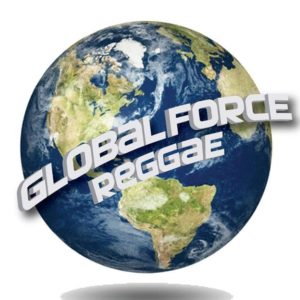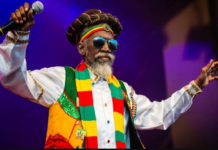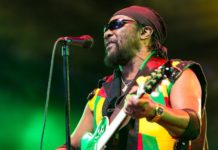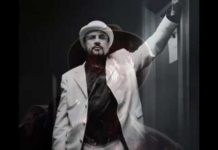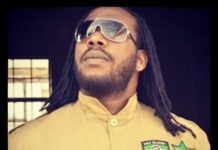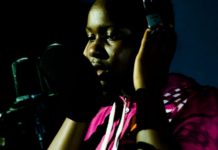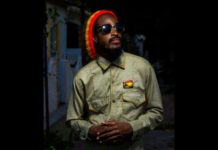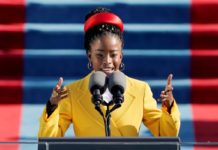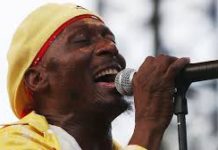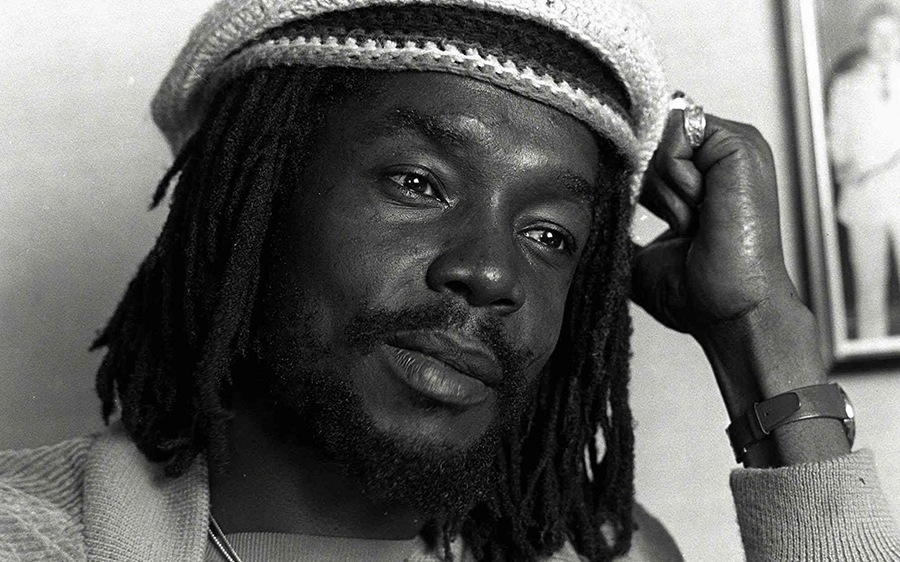His work trumpeted freedom and the struggle against injustice, and he emphasized the connection between music and revolution by toting a guitar in the shape of an AK-47 rifle. Hounded, beaten and jailed by Jamaican authorities, Tosh never backed down or soft-pedaled his views. But he often expressed those views with humor, and was capable of lighthearted surprise as much as full-voiced outrage: an accomplished unicyclist, he often pedaled onstage, to the delight of his audiences. His playful side and irrepressible charisma proved especially charming to women; Tosh’s reputation as a ladies’ man is well deserved.
Among the causes about which he spoke most eloquently and campaigned most tirelessly: the peril of nuclear weapons, the injustice of Apartheid (he was the first major songwriter to discuss the issue openly) and the benefits of legalizing herb. He felt music was a vital tool in all these struggles, and to that end performed countless benefit concerts (including the Youth Consciousness performances in Jamaica, designed to galvanize young Jamaicans against violence and toward political enfranchisement) and established a “Rasta Reggae Radio” station in Jamaica to comfort the afflicted and afflict the comfortable. He also joined such megastars as Bruce Springsteen, Jackson Browne, James Taylor, the Doobie Brothers and Bonnie Raitt for the celebrated “No Nukes” concerts mounted by M– USE (Musicians United for Safe Energy) in 1979, which ultimately became a successful album and film. Rolling Stone declared the performances “a stunning testimony to the depth of the shared beliefs of the generation which came of age in the sixties.” Unlike his U.S. peers, however, Tosh frequently put himself in danger as a result of his activism – especially his constant needling of Jamaica’s rulers.
But Tosh’s vision wasn’t limited to changing laws and reducing weapons. In “African,” he offers a moving testimony to shared roots, declaring, “Don’t care where you come from/As long as you’re a black man, you’re an African.” The song’s passionate demand that black people ignore the shades of their “plection” and celebrate their common origins continues to resonate powerfully. “Get Up, Stand Up,” which he co-wrote, became the anthem of Amnesty International.
Tosh hit the global charts with the classic-soul cover “Walk, Don’t Look Back,” his smash duet with Mick Jagger (and became the first artist to sign with Rolling Stone Records), and was awarded a posthumous Grammy Award for Best Reggae Performance in 1987 for “No Nuclear War” – just months after he was murdered in a controversial home-invasion robbery. But though his life was snuffed out by violence, his star has shone ever brighter in the ensuing years.
“Truth has been branded outlaw and illegal,” Tosh’s voice declared on an audiotape found after his demise. “It is dangerous to have the truth in your possession. You can be found guilty and sentenced to death.”
Peter Tosh’s example, as both artist and activist, continues to inspire creators and idealists around the world. He was and is a true leader whose music and message inspires people on every continent throughout the world.
Source: PETERTOSH.COM © 2017 PETER TOSH ESTATE
